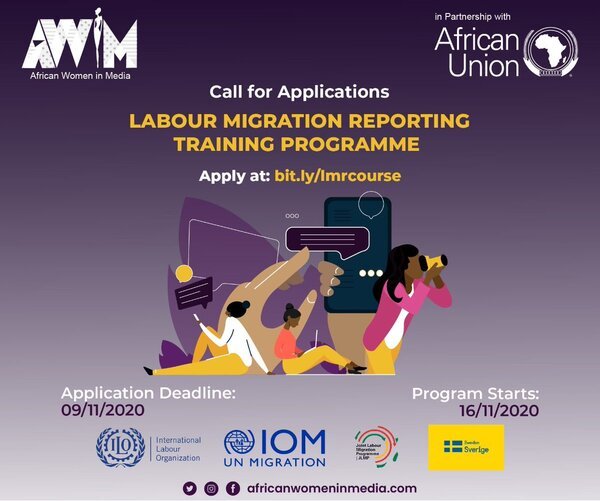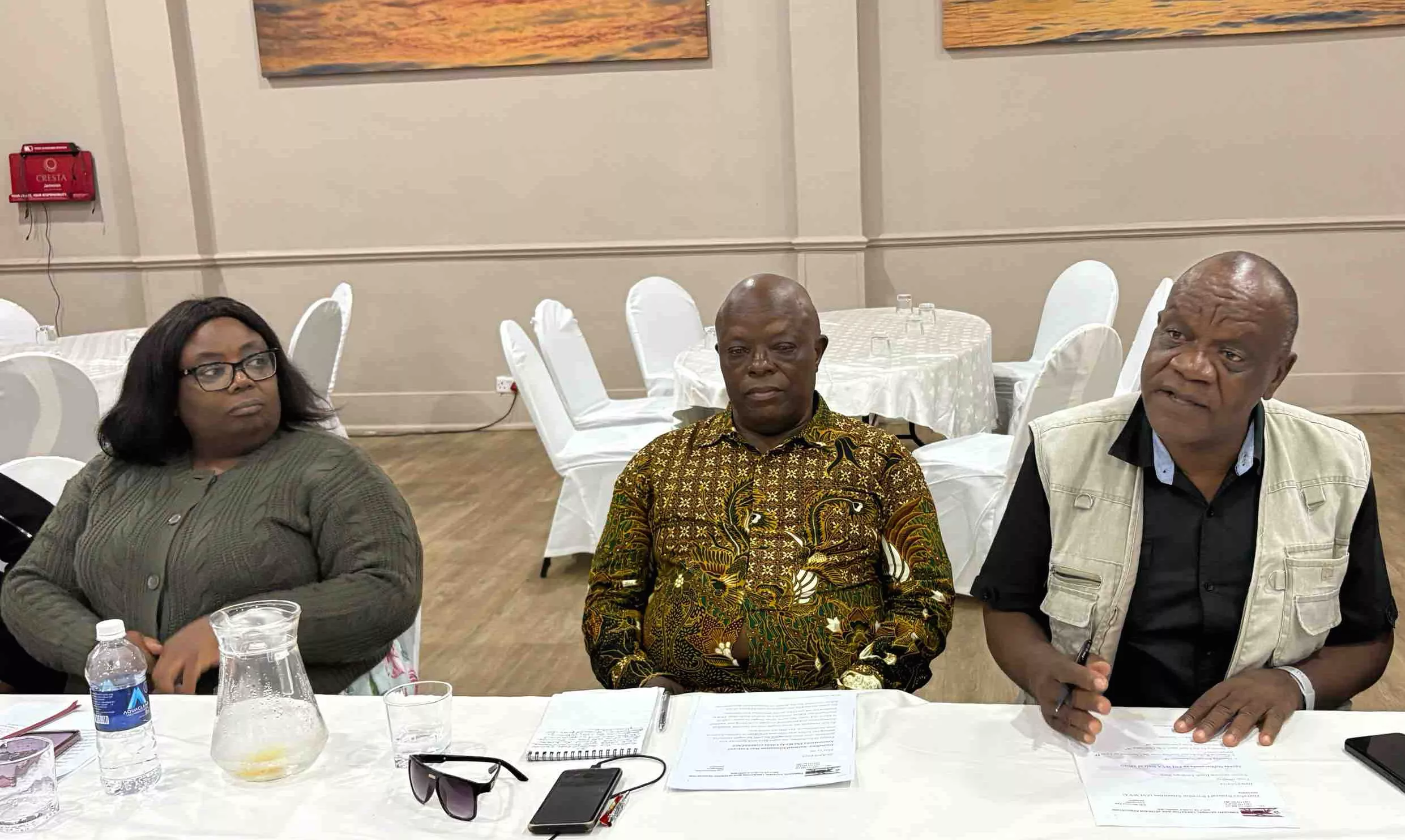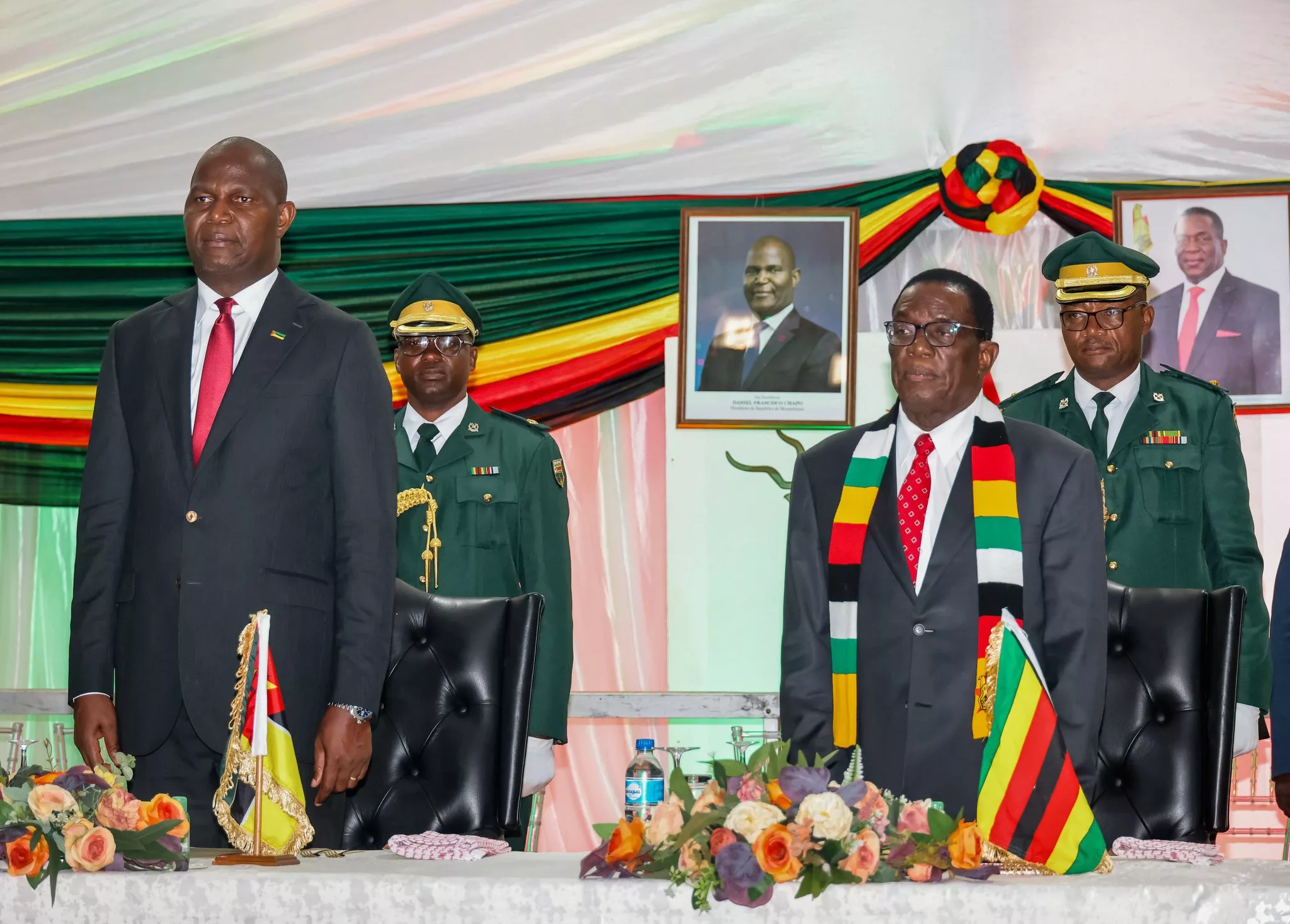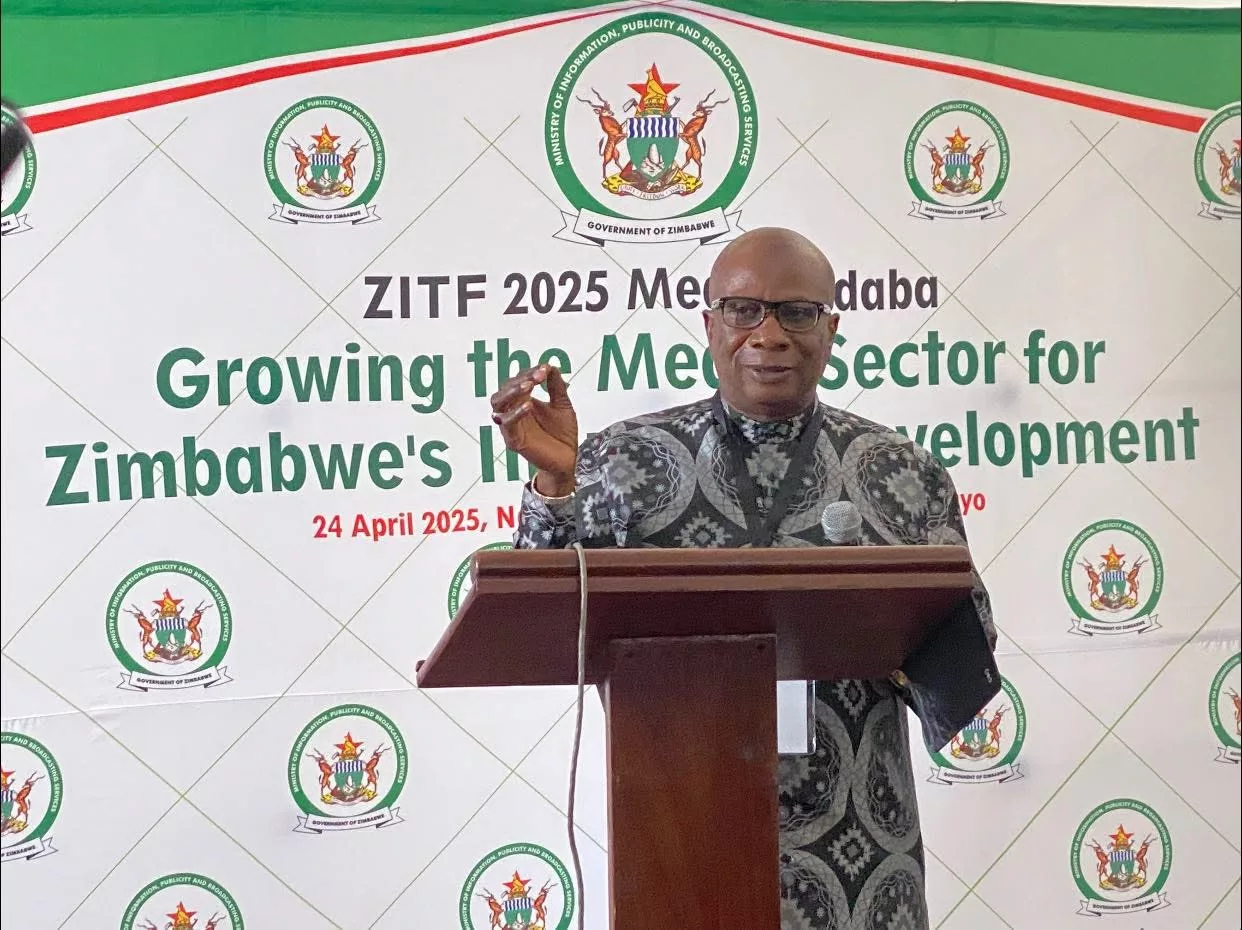By Joyce Mukucha
Driven by the desire to foster good reporting on labour and migration in Africa, the African Women in Media (AWiM) in partnership with the African Union, International Labour Organisation (ILO) and International Organisation for Migration (IOM) are spearheading a training that focuses on the important journalistic work.
The training is accommodating 200 African women journalists undergoing five courses with each focusing on a particular area.
The overall aim of AWiM’s Labour Migrations Reporting course and Media101 training is to enhance the capacity and skills of the female participants as well as understanding what it takes to cover labour and migration in Africa.
AWiM believes that the media play an integral role in the general understanding of particular events and processes; highlighting that journalists also play a central role in weeding out gross abuses and challenges faced by migrants around the globe. It urged women journalists to embrace and experiment with different platforms reaching more audiences through presenting richer stories to do with labour migration.
Giving an example of Wemimo Adewuni, an experienced multimedia journalist currently based in Nigeria as part of the Nigeria 99.3 FM Lagos team who is also the instructor of AWiM’s Labour Migrations Reporting course, Labour Migration and Media101, AWiM said it requires basic journalistic skills to master Labour Migrants reporting.
“For Wemimo Adewuni, it all comes down to the basics of good journalism. For her, having a good foundation is crucial for good reporting on labour migration. She said, “A lot of journalists in Africa are not well trained.”
“This gap in skills affects the work that journalists covering labour migration produce. Adewuni’s course focuses on closing that gap. This course (Labour Migration and Media101) ensures that people learn those critical skills. The course, spread out over 10 modules, covers a range of skills, from research and fact-checking to undercover work and dynamic storytelling.
“So the emphasis here is on learning and sharpening technical skills, and in lining up with the other courses to provide the 200 women journalists with a comprehensive set of training,” said AWiM.
AWiM also emphasised the need to understand the various contexts and complexities of labour migration explaining that for such a diverse continent, an approach that is suitable for one country or region will not automatically work in another.
“From breaking news to long-form journalism, investigative stories to opinion pieces, journalists can provide context, key facts, and a human touch to information that can often feel remote and impersonal.
“Adewuni explains that”for different countries,it [reporting]works in different ways and use of different media to tell different stories.”
AWiM reiterated that the critical role of journalism is especially important when covering labour migration revealing the mistreatment of migrants worldwide.
“It is the work of journalists that highlighted the treatment of migrants trying to get to Europe,the realities of internally displaced persons, the origins of increasing xenophobia across the globe,and the people at the heart of migration.”
Referring to Ayanda Mtethwa another female journalist, AWim underscored that it is important for journalists to have a good understanding of the diplomatic relations and continental frameworksthat shape migratory patterns and urged journalists to conduct thorough researches in order for them to tell different stories.
“Labour migration does not occur in a social, political or economic vacuum. Researching the different contexts and conditions that influence labour migration makes for more well- rounded reporting.”
Africa has a long history of migratory movements. The movements, both voluntary and forced, have shaped inter-continental relations, economic cultures and cultural dynamics.
In relation to this, AWiM also emphasised that as migration patterns change due to economic and ecological constraints, an analysis of the different policies and frameworks by Africa’s governing bodies is integral in understanding the roles and responsibilities of the different continental bodies and individual countries.
In quest to attain Agenda 2063, it has been learnt, the African Union’s (AU) 55 member states are also working to promote peace and development.
Agenda 2063 is the AU’s blueprint to catapult the continent into a global powerhouse by 2063.
Additionally, AWim pointed out that two of AU’s 15 flagship projects in particular are connected to labour migration.
It added that the creation of the African Continental Free Trade Area and the African Union passport with the removal of visa requirements for its holders, would facilitate safe labour migration, provide migrants with legal protections as well as foster inter and intra-regional cooperation.
“Migrants labour is vital to realising Agenda 2063’s vision, and so requires specific provisions and protections.”






